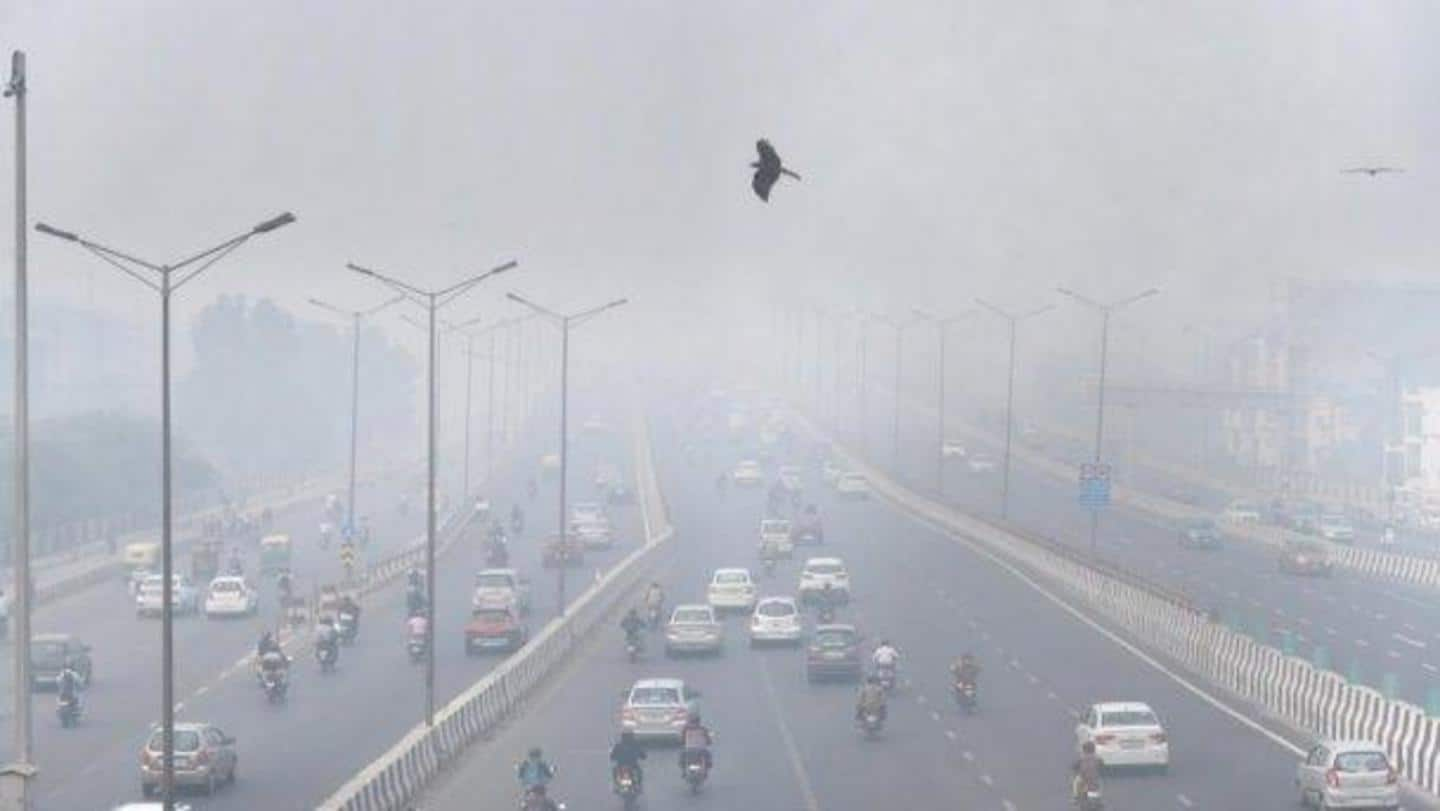
Delhi's air quality could turn 'severe' on Diwali night
What's the story
Delhi's air quality remained 'very poor' on Saturday morning and is likely to turn 'severe' by night due to calm winds and emissions from firecrackers, government agencies reported.
This year, PM2.5 concentration is likely to be the lowest in four years if no firecrackers are burnt.
The National Green Tribunal has imposed a ban on firecracker sale/use in Delhi and other areas till November-end.
Pollution
Without firecracker emissions, Delhi's air to remain 'very poor'
Delhi's pollution levels during Diwali are likely to remain in the higher-end of the 'very poor' category (Air Quality Index: 301-400) in the absence of firecracker emissions, according to the Ministry of Earth Sciences' air quality monitor, SAFAR.
Farm fires and calm winds will keep air quality in the higher-end of the 'very poor' category or the lower-end of the 'severe' category (AQI: 401-500).
AQI
Delhi reported AQI reading of 369 on Saturday morning
At 9 am on Saturday, Delhi recorded an AQI of 369. Notably, an AQI reading between 0-50 is considered 'good.'
The 24-hour average AQI was 339 on Friday and 314 on Thursday.
In the National Capital Region (NCR), Ghaziabad reported an AQI of 412, followed by Noida (362), Greater Noida (350), and Gurugram (338), and Faridabad (323).
Information
Calm winds, firecracker emissions may turn air quality 'severe' tonight
The head of the India Meteorological Department's (IMD) environment research center, VK Soni, said calm winds and firecracker emissions may turn pollution levels 'severe' on Saturday night as people celebrate Diwali. SAFAR noted that PM2.5 levels may spike early Sunday if people burst firecrackers.
Previous years
In previous years, pollution levels spiked immediately after Diwali
Last year, Delhi had recorded a 24-hour average AQI of 337 on Diwali (October 27), and 368 and 400 the next two days. Pollution levels remained 'severe' for three consecutive days thereafter.
In 2018, the 24-hour average AQI on Diwali was 281. It worsened to 390 the next day and remained in the 'severe' zone for three consecutive days thereafter.
Forecast
This year, air quality might improve after Diwali
The IMD said a fresh western disturbance will likely increase wind speed, which will help improve Delhi's air post-Diwali.
Light rain is also expected on Sunday, however, it remains unclear if it would be enough to wash away the pollutants, said Kuldeep Srivastava, the head of the IMD's regional forecasting center.
On Sunday, maximum wind speeds are expected to reach 12-15 kmph, he said.
Ban
NGT has banned sale or use of firecrackers in NCR
On Friday, the Commission for Air Quality Management directed the Central Pollution Control Board and states to ensure there is no lapse in the implementation of the NGT's directions.
On November 9, the NGT had ordered a ban on the sale or use of firecrackers effective midnight the same day till November 30 in NCR, and parts of Uttar Pradesh, Rajasthan, and Haryana.